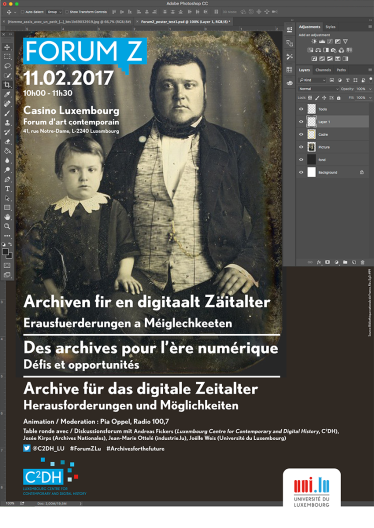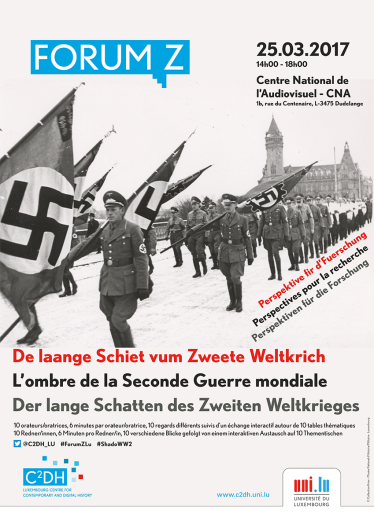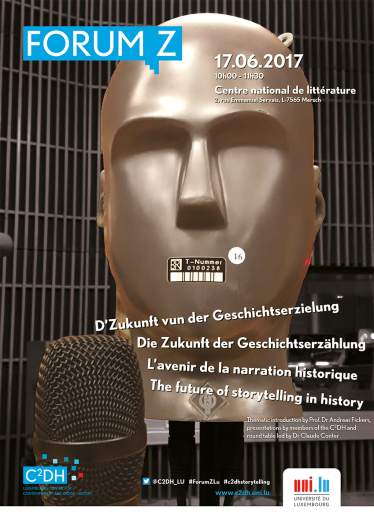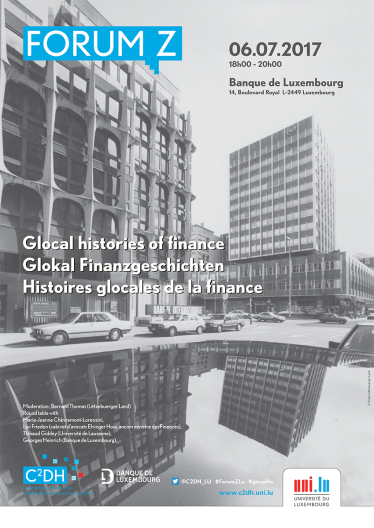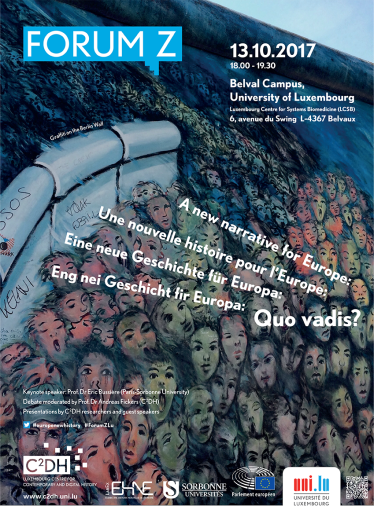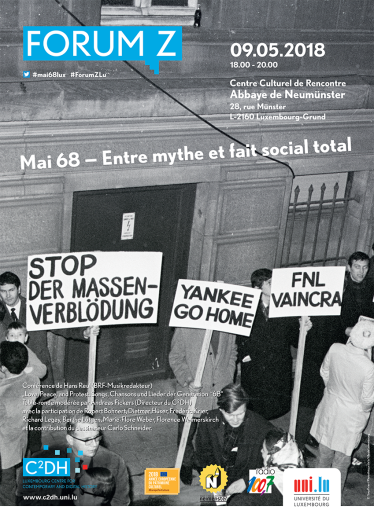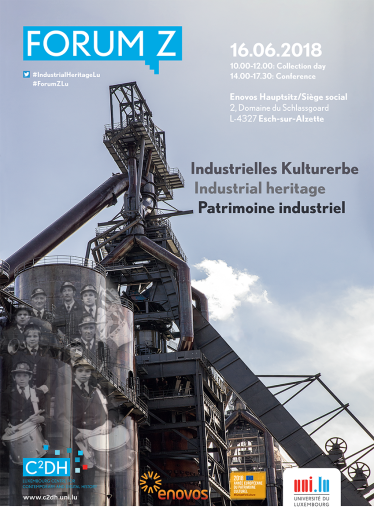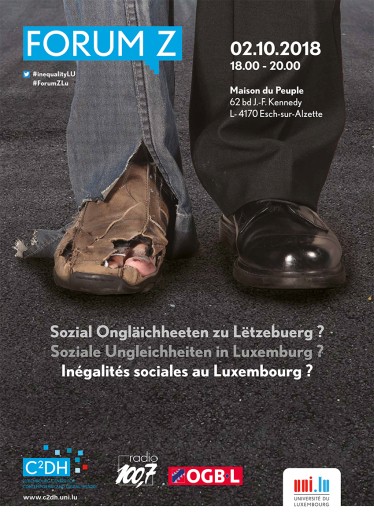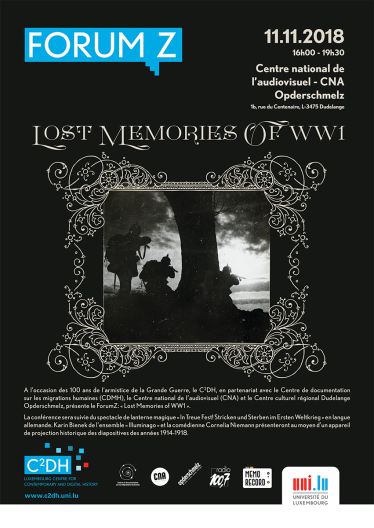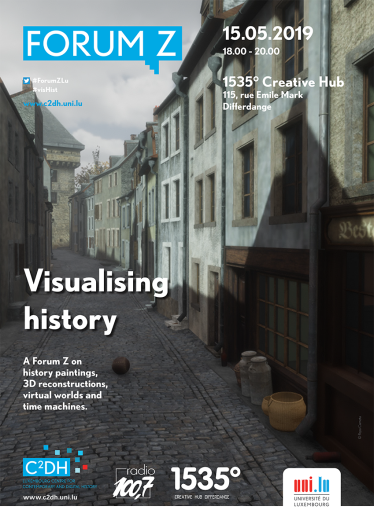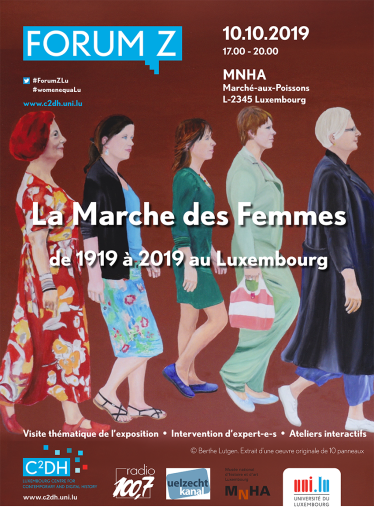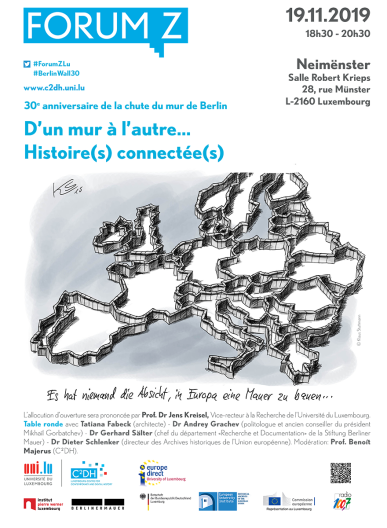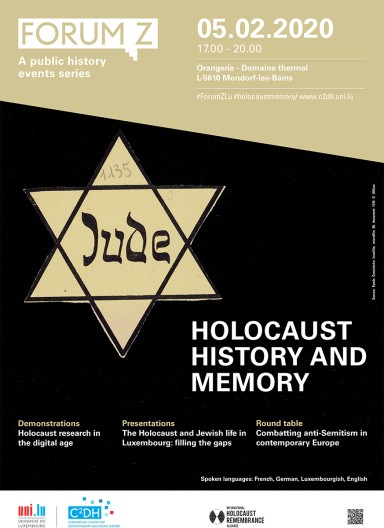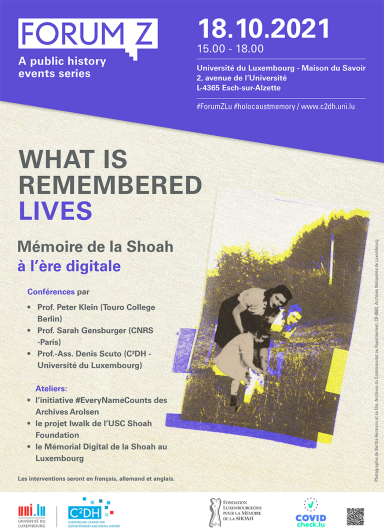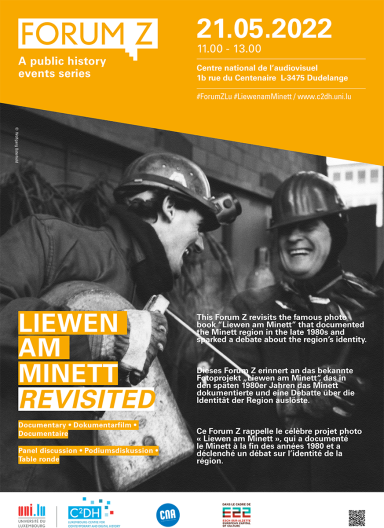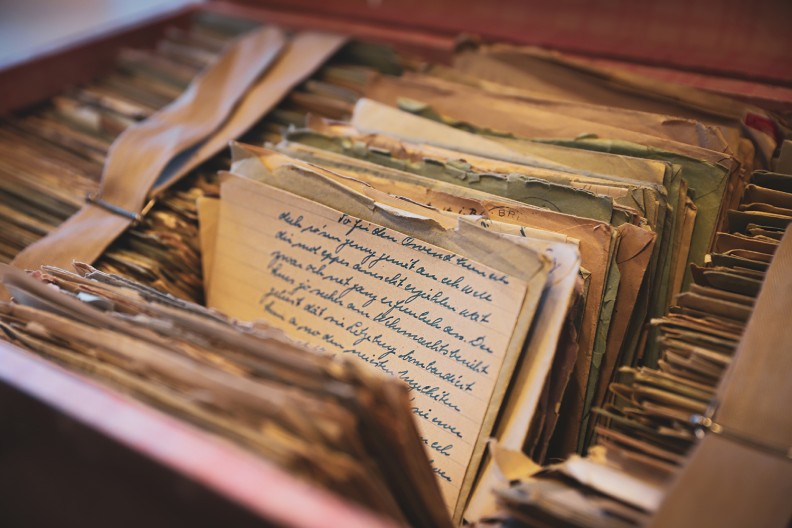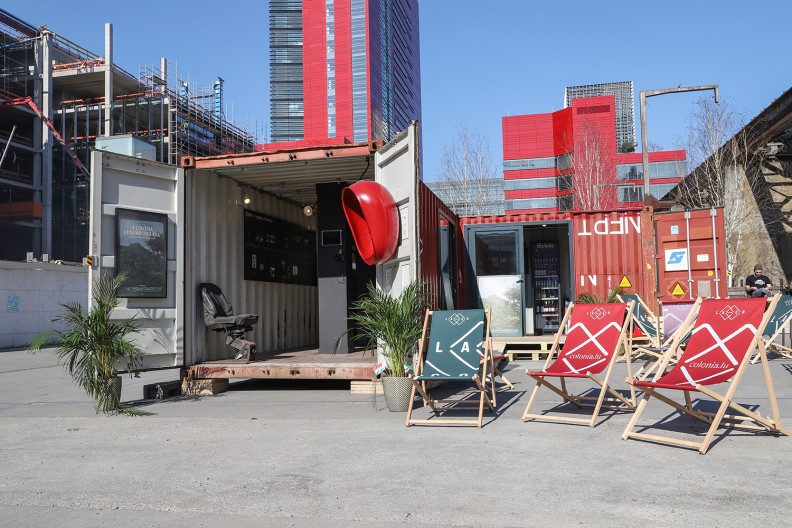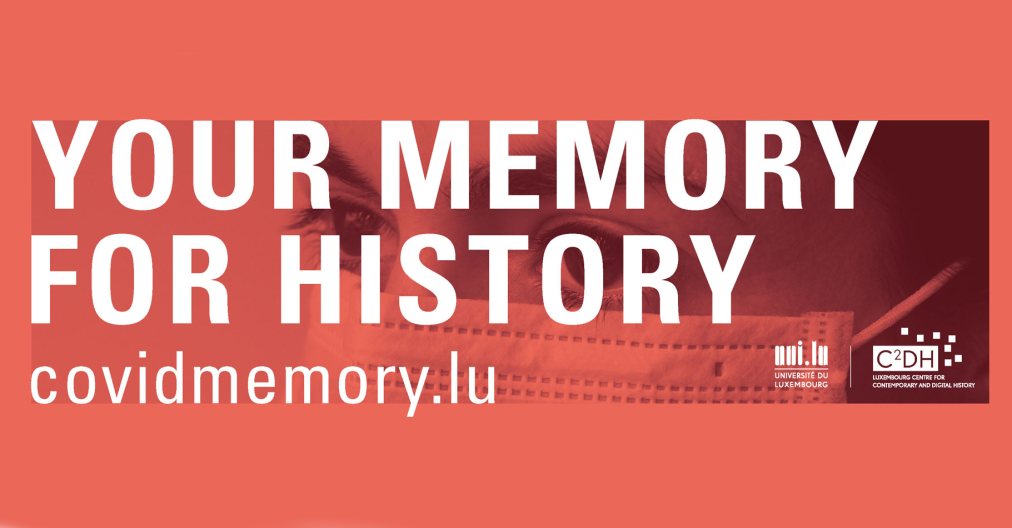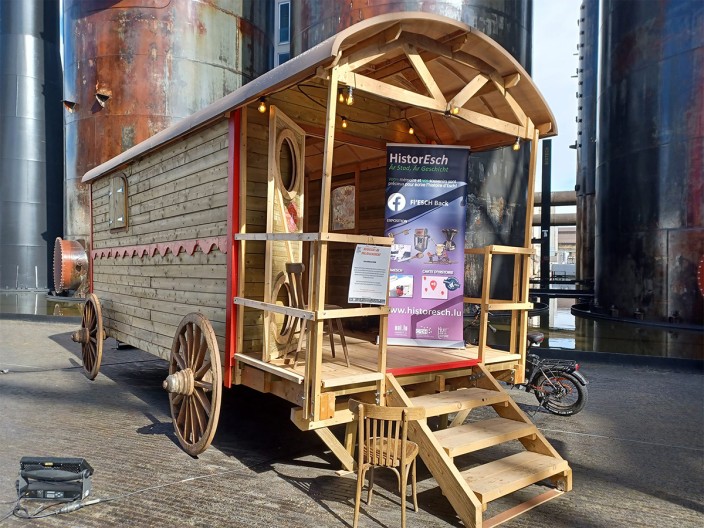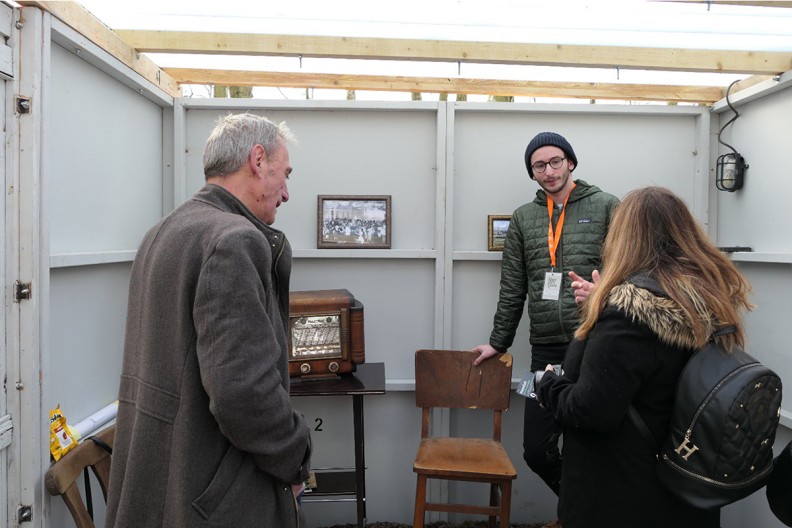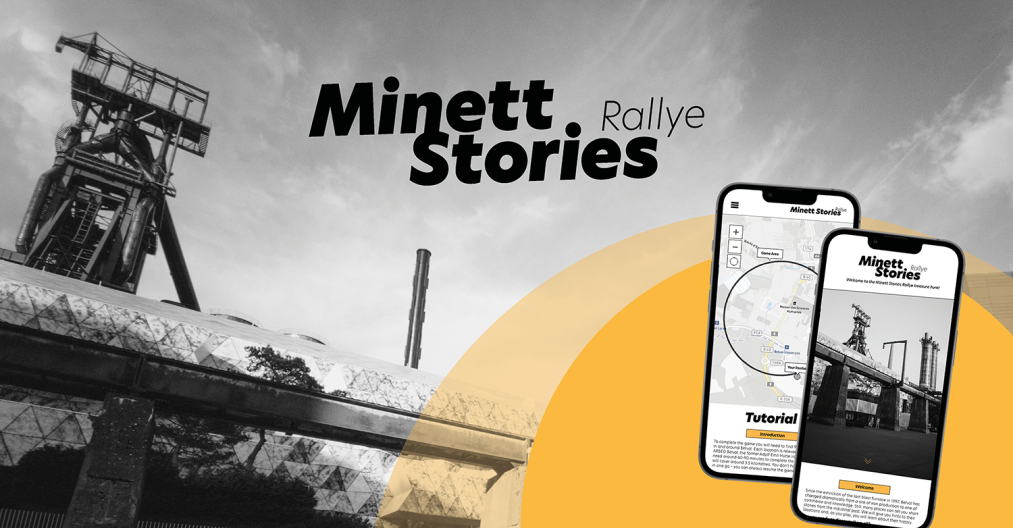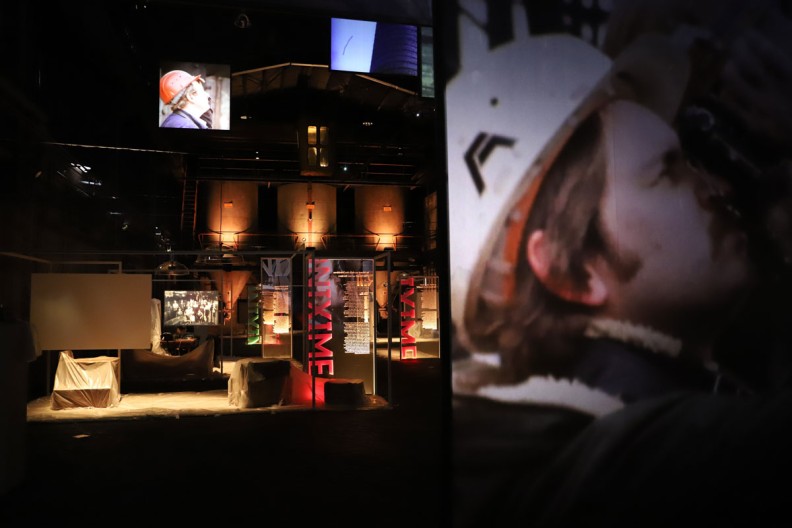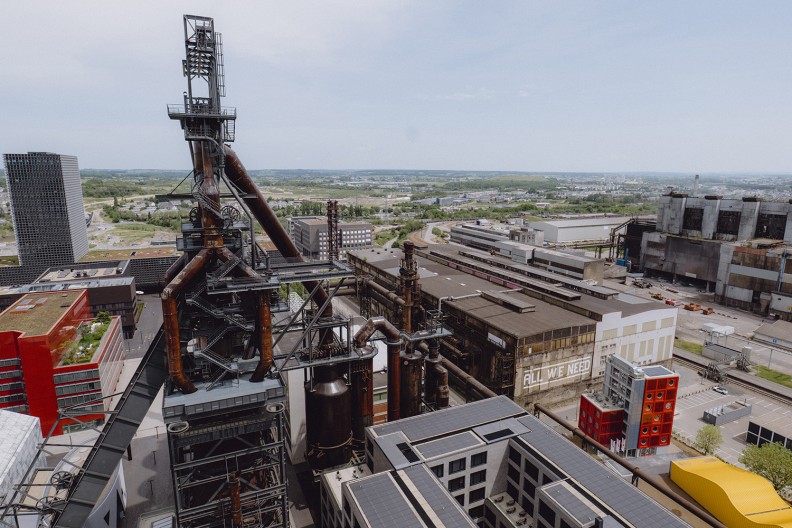Public history promotes a two-way dialogue between historians and the society in which they live. Public historians seek to share their academic knowledge as widely as possible through outreach activities. Conferences, digital platforms, games, social media and traditional media outlets are all ways of reaching out to a wide audience and taking history beyond the confines of academia. Public historians also collect documents, objects and memories from citizens so that they can be incorporated into the writing and interpretation of history.
Forum Z: making history accessible to everyone
Forum Z (Z for Zeitgeschichte, or contemporary history) is a regular series of conferences intended for a lay audience that serves as platform for a critical and open debate on topical questions in the field of contemporary and digital history. Forum Z was launched in 2017 and soon became one of the C²DH’s trademarks.
Forum Z aims to take the discussion about topical historical questions beyond academic walls. The primary goal is to share research results with the public and to encourage public engagement with the considerations and reflections of professional historians. To this end, we experiment with different forms and formats, including discussions with experts in small groups, interactive demonstrations and historical re-enactments. During Forum Z events, we gather information, ask for opinions and test out arguments, sharing our knowledge with participants. The audiences at Forum Z events are diverse, ranging from citizens and interested individuals to history buffs and representatives of learned societies, memorial organisations and local authorities.
Public engagement
The C²DH regularly appeals to citizens with the aim of collecting historical documents, artefacts or testimonies. Following a public call launched during the WARLUX research project, we were able to collect hundreds of letters and photographs, especially related to Luxembourgers who were forcibly recruited by the Nazi German army. Many research projects seek public contributions, such as A Colônia Luxemburguesa, a transmedia project about the steel-related migration history between Luxembourg and Brazil.
One of the challenges of contemporary history is how to incorporate an oral history dimension. The memories of people who were involved in or witnessed historical events can enrich our understanding of the past. The practice of oral history, which emerged as a “bottom-up” movement in the 1970s, has been transformed with the advent of digital technologies. Millions of eyewitness accounts are shared on social media, yet they often lack contextual information or basic historical metadata. An example of an innovative approach to digital oral history at the C²DH is Memorecord, a PhD project based on the online harvesting of migrant memories in Luxembourg.
The historic dimension of the COVID-19 pandemic was immediately obvious. With the online platform covidmemory.lu we offered people living or working in Luxembourg the opportunity to share their experiences and memories of the crisis. Hundreds of contributions in the form of texts, photos, cartoons and videos provide a unique testimony for future generations, creating a digital archive of real relevance for future research. The centre also collected dozens of oral accounts from care staff working in hospitals and retirement homes during the pandemic as part of the “Yes We Care” project. These memories engage citizens in the process of writing and interpreting history and enrich the narrative perspectives of contemporary history.
Community-driven projects & citizen science
The “Public History as the New Citizen Science of the Past” project (PHACS) includes several initiatives that explore participatory history. The project offers opportunities to foster links between the University of Luxembourg, cultural institutions, local groups and associations, and individuals. HistorEsch actively engages the inhabitants of Esch in the development of an exhibition of personal objects. Other initiatives within PHACS are the production of a multilingual audio tour based on oral histories of Esch residents, an interactive platform designed to engage a wide audience with the town’s history on Facebook called Fl’Esch Back, and a historical mural (ArtistESCH) inspired by the (hi)stories of the Lallange district in close collaboration with the Kulturfabrik.
A new approach to industrial history
The history of Luxembourg is marked by the iron and steel industry. The Remixing Industrial Pasts project explores the history of cultures, populations and territories in the Minett region from different perspectives and angles. It looks at the circulation and flow of ideas, people and goods between Luxembourg, France and other European countries. The initial results of the project were presented in the multimedia exhibition “Remixing Industrial Pasts: the Construction of the Identity of the Minett” in the Massenoire (27 February–15 May 2022), a former industrial hall on the university campus. This exhibition was produced in collaboration with the artist collective Tokonoma, the architectural firm 2F Architettura and the European Capital of Culture Esch2022. The exhibition is accompanied by the Minett Stories Rallye, a mobile game developed in collaboration with the University’s VR/AR Lab which invites users to discover nine secret locations in and around the Belval Campus and to learn more about its industrial past. Finally, the large-scale online exhibition Minett Stories will be launched in May 2022.



